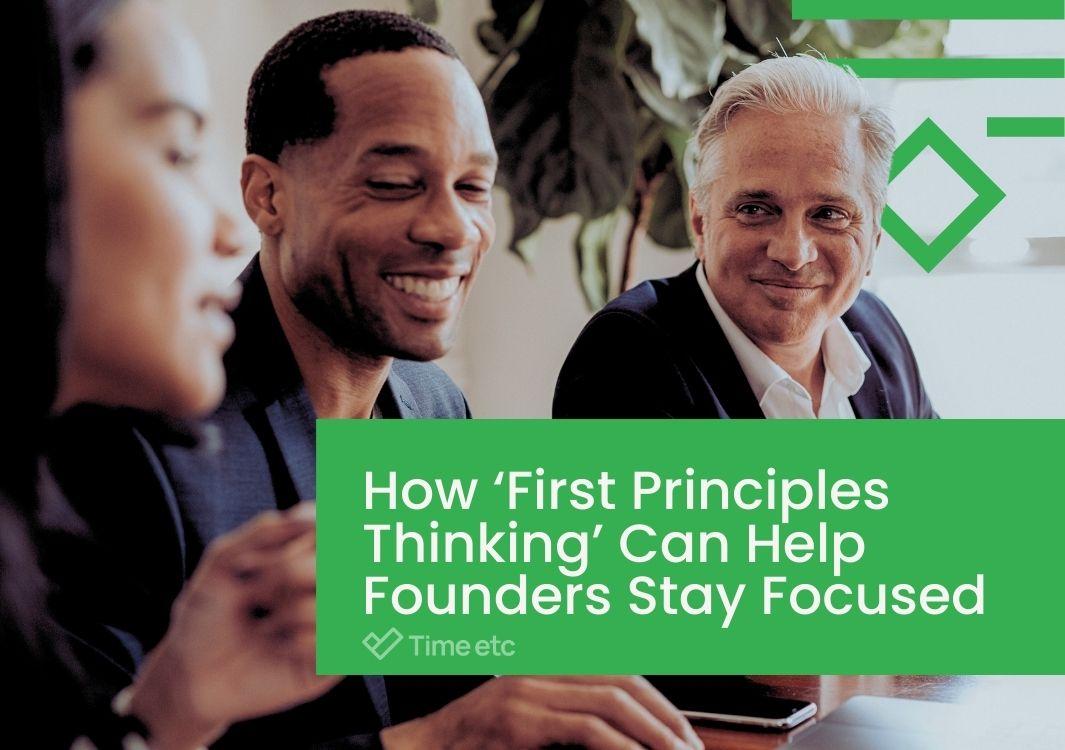What is the key to success for entrepreneurs? Is it a good idea, a great idea, the perfect idea? It depends on who you ask. Most people think that entrepreneurs need to have a new, amazing idea to make it big, but this is only half of the story.
No doubt, there will be ups and downs for anyone who takes on the challenge of entrepreneurship. It’s how you manage those challenges, how you deal with obstacles, and how you keep yourself pushing forward that will carve out your path to success.
This is why the importance of motivation for entrepreneurs cannot be understated. Being in business for yourself is a very different experience than working for someone else. You’re the master of your own destiny, the person responsible for the outcome of your own efforts. The freedom of being your own boss is great, but without someone to hold us accountable for our work and progress, it is entirely up to us as business owners to maintain the strength, focus, and momentum needed to achieve our goals.
But motivation isn't one-size-fits-all, in fact, it comes in many different forms. If you’ve been struggling to stay motivated recently, it could be that a different approach is needed. By understanding the different types of motivation, you can tailor your own approach to better suit your needs and maximize your effectiveness.

Motivation styles
While there are many different types of motivation, each falls into one of two categories – intrinsic and extrinsic motivation.
Simply put, intrinsic motivation stems from internal drives and satisfaction. Extrinsic motivation can be described as seeking external gains and benefits or avoiding negative outcomes.
Physiological
The most fundamental type of motivation for humans. We all have an innate need to survive, and this is often the primary motivator for our actions. Whether it's finding food when we’re hungry, sheltering ourselves from the elements, sleeping when we’re tired, or avoiding danger, our survival instincts drive much of what we do.
Abraham Maslow’s hierarchy of needs theory posits that when our more basic needs are met, we then become motivated to satisfy other needs.
Achievement
Those with a competitive spirit are often achievement-motivated. This is a form of extrinsic motivation where individuals are driven by successes and wins.
Rather than any physical or financial prizes, the feelings of accomplishment, being top of the leaderboard, or recognition and praise for a job well done is the reward they’re chasing.
Attitude
This form of intrinsic motivation is all about changing the way you or others think and feel.
A classic example is motivational speakers, who are driven by their desire to inspire positive changes in their audiences by changing their outlook on their self-confidence, inner beliefs, and even life in general.

Competence
Another form of intrinsic motivation, this is what pushes individuals to strive for excellence and become more adept at a particular task or skill. Unlike achievement motivation which is a desire to win or be the best, this type of motivation is driven by curiosity, a willingness to know more, or wanting to “better yourself” in some way.
Practicing your hobby every evening, reading up on a topic you’re interested in, and undergoing training or earning additional qualifications for your role are all prime examples of competence motivation at work. You might argue that, for example, earning additional qualifications at work could lead to external gains such as a promotion. While this would certainly be an added bonus, it is not the main objective. In this case, gaining more knowledge and expertise is the driving force behind the activity.
Incentive
Perhaps the most common—and one of the most powerful—forms of extrinsic motivation is the offer of a tangible reward on completion of a task.
However, the effectiveness of this type of motivation depends on the individual and how much they value the reward in question.
Fear
If incentive motivation is the carrot, fear-based motivation is the stick. It’s the desire to avoid negative consequences. It might sound overtly negative, but that’s not quite the case.
Accountability and holding yourself responsible for your actions are crucial for any leader and it’s a useful productivity technique to avoid procrastination and follow through on what you set out to do. This fear of failure or fear of letting others down is fear-based motivation in a nutshell.
However, it is important to bear in mind that fear-based motivation shouldn’t be your primary form of motivation, as it can lead to higher stress levels, increased anxiety, and lower job satisfaction.
Power
Those who want nothing more than to change the world are bound to have high levels of this type of extrinsic motivation. Let’s be honest, at first glance this can be positive or negative depending on who you ask. Some may think of the inspirational forces for good, such as Martin Luther King Jr., a humble Baptist minister to civil rights legend and the youngest recipient of the Nobel Peace Prize at the time it was awarded in 1964. On the flip side of the coin, others may think of the cruel dictators throughout history.
While power-based motivation often presents itself as a desire for prestige, enhanced reputation, or a position of influence, it can also be what drives people to create a lasting impact in their industry or be responsible for leading others to success.
Affiliation
In its simplest terms, affiliation motivation stems from the desire to fit in with and meet the standards set by others.
Feeling energized and inspired after networking with big names or high-fliers in your industry is one example of affiliation motivation at work. Joining your colleagues for after-work drinks to avoid the FOMO (fear of missing out) is another.

Tips For Boosting Motivation
Knowing the different types of motivation is one thing, but sometimes even when we're pursuing our passions it can be tough to summon the strength to knuckle down. So here are some useful techniques that span across both intrinsic and extrinsic motivation to help you push forward.
- Know your “why” - Why have you set your goals in the first place? Why are they important to you? Why should you keep going? If you can't answer these questions and you don’t have a strong connection to your goals, there’s nothing to keep you on track when things get tough.
- Find your trigger - Your “why” is crucial, but a “what” can be pretty handy, too. Each of us has something that helps us get in the zone, or start our brain cogs turning. Personally, my go-to is watching an inspiring TED Talk, but yours could be just about anything. Whether it’s an empowering podcast, a playlist of your favorite music, or a chapter of an inspiring book, it’s worth having a trigger in reserve ready for those times when you need a pick-me-up.
- Small, regular goals - Think about the short- and long-term objectives you’ve set for your business. The thought of the future satisfaction you’d feel from achieving something in a year’s time might not be enough to motivate you in the present, so break them down into a series of smaller, easily digestible goals. Then, set one for yourself every day or week. When the feeling of accomplishment or the satisfaction of achieving a small win is always close at hand, you’ll find it easier to make it happen.
- Body double - If you find yourself struggling to start or follow through on tasks, body doubling – doing a task in the presence of another person – could be your answer. In the same way that students choose to study in the library with other quiet, focused individuals, chances are you’ll find it easier to get things done working alongside someone else who is working hard. You’re holding yourself accountable to that person, you want to fit in with them by matching your behavior to theirs, and you don’t want to let them down by getting distracted or straying off-task. If nothing else, having some company may make an otherwise boring task more enjoyable.
- Bounce off others - If you’re stuck in a rut and no matter how hard you try, work isn’t flowing, try speaking to others – even just for a few minutes. Schedule a brainstorming session with your team, discuss solutions to problems with a co-worker, or ask a friend for some advice. Recent research has shown that social interaction involving discussion of a common topic produced short-term cognitive benefits similar to those gained from brain-training games, so don’t see it as slacking off, you’re actually warming up your mental muscles.
- Celebrate your achievements - Not just for those who are primarily incentive-motivated, you should never underestimate the power of a small reward. So for both big achievements and small wins, make sure you have a way of celebrating them afterward. Choose something that’s meaningful to you and that you know you'll enjoy, it just might be the boost you need.
What’s The Bottom Line?
Motivation matters because it has a direct influence on your productivity and success. Those without it will be more likely to fall off the wagon when they encounter obstacles or challenges.
When you understand what motivates you or brings you the most satisfaction, you’ll not only be better able to build more effective habits for yourself, you’ll be more likely to maintain them. Building and sustaining momentum is what will propel you toward your goals.










